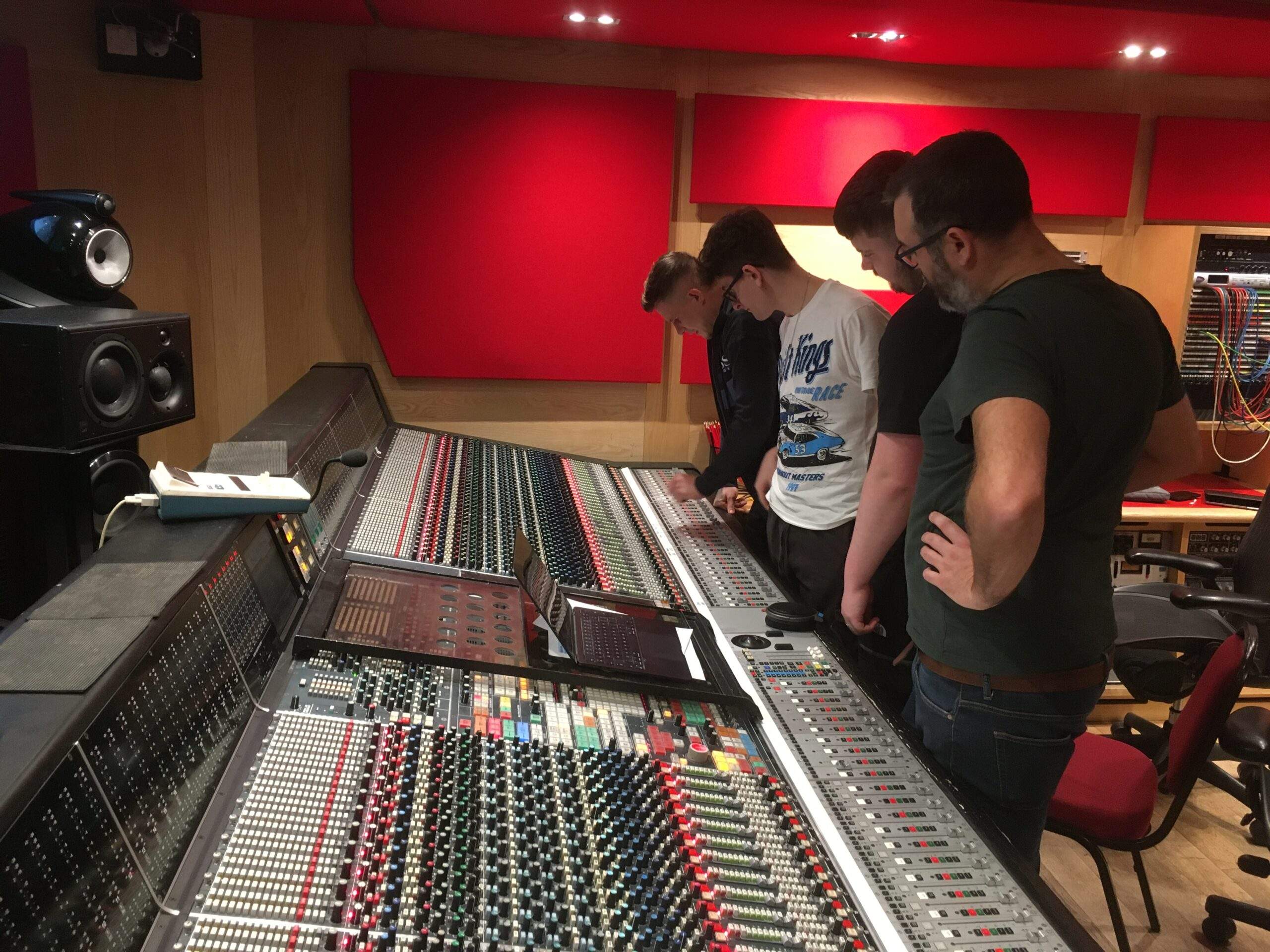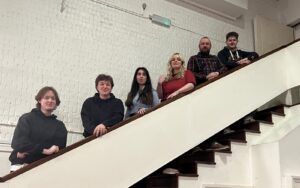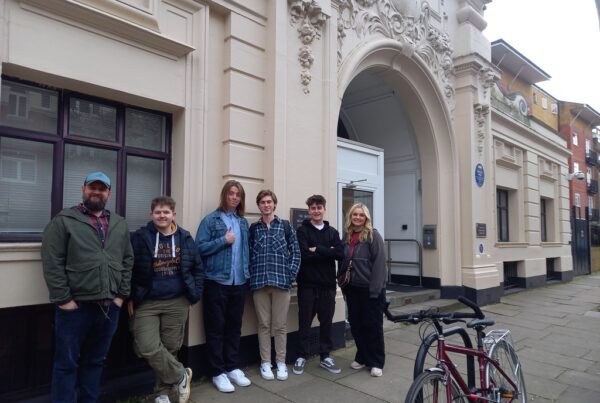Students have produced artists live in Abbey Road for BBC Introducing.
This year’s annual trip to Abbey Road Studios, held over 13th and 14th March 2024, marked the tenth anniversary of York St John University’s long-standing educational association with the iconic studio, a relationship which over the years has become central to the Music Production BA(Hons) course experience. Each year’s Abbey Road visit provides a unique opportunity for Year 3 BA Music Production students to work on a stimulating music recording project in a highly specified professional studio setting (typically the students have either worked in the famous ‘Beatles’ Studio 2, or alternatively the smaller Studio 3), closely overseen by the Abbey Road engineering staff. Projects have ranged from the recording of film scores with classical musicians to ‘Live at Abbey Road’ album sessions involving bands working in a wide range of musical styles from pop to rock. During their time in the studio the students are given privileged access to the recording equipment and house musical instruments, coached in the setting up of recording sessions, and participate in the management of the recording process from the vantage point of the control room.
The ‘Balcony Sessions’ revisited
2024’s Abbey Road brief was to record five artists associated with the ‘Balcony Sessions’ project, an ongoing series of live recordings focused on local musicians made for broadcast on BBC radio (York and North Yorkshire) in association with the BBC Music Introducing series, which has since the late 2000s played a pivotal role in connecting emerging musical talent with local and national audiences. The project was initiated in early 2023 by Leeds Conservatoire trained musician, songwriter and presenter, Declan Vink, who was looking for Maida Vale style production facilities to record live content for the BBC Introducing in York and North Yorkshire programme. He approached Chris Johnson, Senior Lecturer in Music Production at York St John University, who recruited John Ricketts, then an undergraduate on the Music Production and Music Business degree, to manage the recording sessions.
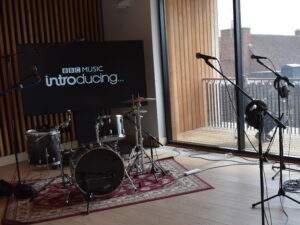 The Balcony Sessions have since taken place on a monthly basis at the York St John University campus in the characterful setting of the recently built Creative Centre. They are unique in their being overseen and engineered by York St John Music Production students, for whom they provide challenging on-the-spot practical music production experience, including handling tailored artist recording set-ups, monitoring sound capture and undertaking the final mixdown. A year on and the 2024 Abbey Road project now presents an exciting opportunity for these same students to work with five artists from the York area who have been featured on the BBC Introducing series during the last few years.
The Balcony Sessions have since taken place on a monthly basis at the York St John University campus in the characterful setting of the recently built Creative Centre. They are unique in their being overseen and engineered by York St John Music Production students, for whom they provide challenging on-the-spot practical music production experience, including handling tailored artist recording set-ups, monitoring sound capture and undertaking the final mixdown. A year on and the 2024 Abbey Road project now presents an exciting opportunity for these same students to work with five artists from the York area who have been featured on the BBC Introducing series during the last few years.
This is an important career moment for these artists who are now afforded the chance to record a live session in a world-famous studio, showcasing new and existing material to be aired over the next few months on BBC Radio and BBC Sounds. The five acts selected to work with the students were as follows:
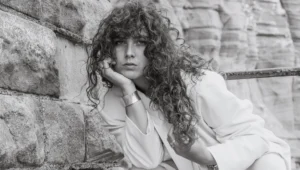 Ruth Lyon, a singer-songwriter hailing from Yearsley (Easingwold), now based in Newcastle. She has released two EPs – Nothing’s Perfect (2021) and Direct Debit to Vogue (2023) – and is a campaigner for improved access of disabled people to live music. Her Abbey Road recording sessions were focused on introducing new material (‘Wickerman’ and ‘Caesar’) ahead of her forthcoming debut album which will be released later this year.
Ruth Lyon, a singer-songwriter hailing from Yearsley (Easingwold), now based in Newcastle. She has released two EPs – Nothing’s Perfect (2021) and Direct Debit to Vogue (2023) – and is a campaigner for improved access of disabled people to live music. Her Abbey Road recording sessions were focused on introducing new material (‘Wickerman’ and ‘Caesar’) ahead of her forthcoming debut album which will be released later this year.
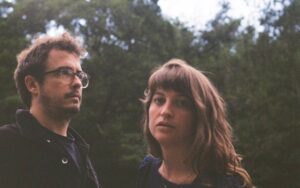 Wanderland is a band spearheaded by singer Natalie Wildgoose and jazz-influenced pianist, Matt Robinson, whose style is best described as indie-folk with tinges of electronic music. The group’s songs have a particular association with North Yorkshire landscape (they record their music in an old mill adjacent to a waterfall in the Yorkshire Dales) and are often evolved and recorded on the spot, making them well suited to a live performance situation.
Wanderland is a band spearheaded by singer Natalie Wildgoose and jazz-influenced pianist, Matt Robinson, whose style is best described as indie-folk with tinges of electronic music. The group’s songs have a particular association with North Yorkshire landscape (they record their music in an old mill adjacent to a waterfall in the Yorkshire Dales) and are often evolved and recorded on the spot, making them well suited to a live performance situation.
 Beth McCarthy is an acoustic guitar-based singer-songwriter from York, now based in London, whose work has a close affinity with contemporary mainstream pop. Her first high profile public appearance was in 2014 on the talent show, The Voice, since which she has released a number of recordings in association with a wide range of artists including Ben Earle (of The Shires) and Leeds group, The Dunwells (see the 2019 Self Portrait EP). One of her most notable recordings is a cover of Ralph McTell’s ‘Streets of London’, which was featured in the film 100 Streets (2016), starring Idris Elba. Beth’s Abbey Road sessions feature Alex Lanyon on guitar, piano and backing vocals who will also appear with Dua Lipa on the Pyramid Stage at this year’s Glastonbury Festival.
Beth McCarthy is an acoustic guitar-based singer-songwriter from York, now based in London, whose work has a close affinity with contemporary mainstream pop. Her first high profile public appearance was in 2014 on the talent show, The Voice, since which she has released a number of recordings in association with a wide range of artists including Ben Earle (of The Shires) and Leeds group, The Dunwells (see the 2019 Self Portrait EP). One of her most notable recordings is a cover of Ralph McTell’s ‘Streets of London’, which was featured in the film 100 Streets (2016), starring Idris Elba. Beth’s Abbey Road sessions feature Alex Lanyon on guitar, piano and backing vocals who will also appear with Dua Lipa on the Pyramid Stage at this year’s Glastonbury Festival.
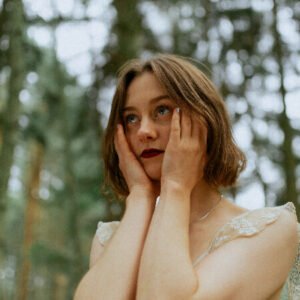 Kindelan is the artist name of York-based acoustic guitarist and singer-writer Laura Kindelan, who creates music of a highly atmospheric and emotional character. Laura’s Abbey Road sessions feature her with her band performing music from the debut EP, you can reach me if you try (2023), including the song ‘Hazel Frustration’, which features the use of atmospheric electronics triggered from Ableton Live.
Kindelan is the artist name of York-based acoustic guitarist and singer-writer Laura Kindelan, who creates music of a highly atmospheric and emotional character. Laura’s Abbey Road sessions feature her with her band performing music from the debut EP, you can reach me if you try (2023), including the song ‘Hazel Frustration’, which features the use of atmospheric electronics triggered from Ableton Live.
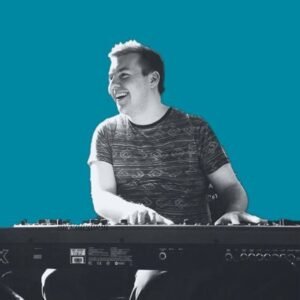 The Sam Johnson Trio, as the name indicates, is headed by York-based pianist Sam Johnson. He has been active as a musician since 2005 and has worked in a wide range of musical contexts including big band and theatre and is also a composer of production music. The Sam Johnson Trio’s tasteful old-school jazz stylings, as showcased on the Christmas-themed debut EP, Up On The Housetop (2023) offer an alternative take on the indie-folk material more typical of the York music scene, and a genre-specific recording challenge for YSJ’s music production students.
The Sam Johnson Trio, as the name indicates, is headed by York-based pianist Sam Johnson. He has been active as a musician since 2005 and has worked in a wide range of musical contexts including big band and theatre and is also a composer of production music. The Sam Johnson Trio’s tasteful old-school jazz stylings, as showcased on the Christmas-themed debut EP, Up On The Housetop (2023) offer an alternative take on the indie-folk material more typical of the York music scene, and a genre-specific recording challenge for YSJ’s music production students.
At work in the recording the studio: what is the Abbey Road experience like?
The 2024 Abbey Road sessions involved the students in a wide range of activities, enabling them to deeply immerse in the typical day-to-day recording practices of the studio. Their work over the two days was overseen by seasoned Studio 2 engineer Paul Pritchard who has collaborated regularly with YSJ students on the Abbey Road projects since 2014. Also involved was recently recruited assistant engineer Ed Farrell who helped to facilitate the set-up process and later coached the students on ProTools engineering duties once the recording sessions were underway. Each day was split into two halves. The mornings were focused on setting up the recording equipment to cater for each artist’s requirements while the afternoons were spent in the control room focussing on the artist performances as they were recorded.
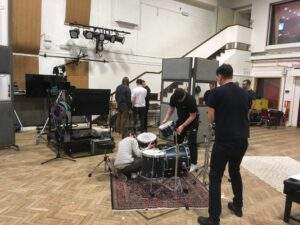 Each morning session began with a briefing meeting from Paul Pritchard in which he explained the ethos of the recording process. In particular he emphasized the fact that these were ‘live’ recordings intended for broadcast, the object being to capture an overall good take possessing energy and character. This he pointed out was different from the process of ‘making a record’ in which there might be multiple takes of individual sections and overdubs of parts recorded individually. He also discussed the importance of researching in advance the artist’s music (via a platform such as Spotify) to get a feel for what they were about, something which would ultimately make for a closer bond during the recording sessions themselves. Listening to an artist’s recordings (in Paul’s words, ‘making that three and a half minutes of effort’) prior to the sessions also aided in making decisions about the recording set-up that would be needed to present their sound in the best light.
Each morning session began with a briefing meeting from Paul Pritchard in which he explained the ethos of the recording process. In particular he emphasized the fact that these were ‘live’ recordings intended for broadcast, the object being to capture an overall good take possessing energy and character. This he pointed out was different from the process of ‘making a record’ in which there might be multiple takes of individual sections and overdubs of parts recorded individually. He also discussed the importance of researching in advance the artist’s music (via a platform such as Spotify) to get a feel for what they were about, something which would ultimately make for a closer bond during the recording sessions themselves. Listening to an artist’s recordings (in Paul’s words, ‘making that three and a half minutes of effort’) prior to the sessions also aided in making decisions about the recording set-up that would be needed to present their sound in the best light.
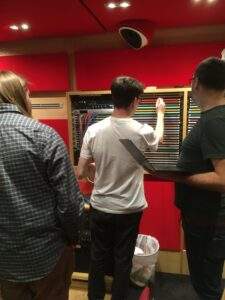 After these initial discussions the students were taken down to the Studio 2 floor to discuss specifics of the recording set-up for the day based on detailed breakdowns supplied in advance by the artists. During this busy 2-3 hour period Paul posed many questions to the students about how they would approach recording each of the artists, asking ‘What solutions are available to us?’. This ranged from decisions about which microphones to use (naturally an expensive range of options were available including U47s, U87s and AKG C414s) and their placement in relation to voices and instruments as well as the sumptuous room acoustics. Also covered were other essential operations such as cable patching and AMS NEVE 88RS desk routing. In essence the students were being closely tested on the sound engineering music production knowledge they had acquired over the course of their studies at York St. John, now transplanted to a professional studio recording environment. In addition to technical matters, the students also picked up some valuable tips on the psychological management of the artist’s recording experience, including furnishing the environment with attractive rugs and choosing appropriate lighting.
After these initial discussions the students were taken down to the Studio 2 floor to discuss specifics of the recording set-up for the day based on detailed breakdowns supplied in advance by the artists. During this busy 2-3 hour period Paul posed many questions to the students about how they would approach recording each of the artists, asking ‘What solutions are available to us?’. This ranged from decisions about which microphones to use (naturally an expensive range of options were available including U47s, U87s and AKG C414s) and their placement in relation to voices and instruments as well as the sumptuous room acoustics. Also covered were other essential operations such as cable patching and AMS NEVE 88RS desk routing. In essence the students were being closely tested on the sound engineering music production knowledge they had acquired over the course of their studies at York St. John, now transplanted to a professional studio recording environment. In addition to technical matters, the students also picked up some valuable tips on the psychological management of the artist’s recording experience, including furnishing the environment with attractive rugs and choosing appropriate lighting.
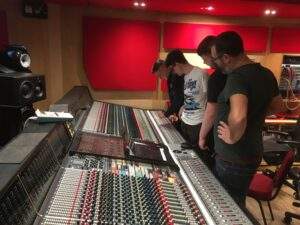 With the set-up complete the afternoon sessions were now devoted to monitoring the recording process for each artist’s session. Here the students gathered in the control room to listen to takes as Paul offered observations on what was ideally being looked for in the performances, all the while dropping many useful insights into a how a professional recordist should evaluate a recording as it is developing. Much of what was discussed related to issues that the initial takes revealed about the morning set-up decisions and whether adjustments now needed to be made. Questions such as the following frequently arose: Was the guitar too loud and does the amp need to be screened? Does the singer need to be further from the microphone? Does the percussionist need a different beater? Some basic but important advice was also given, such as the need to always be in ‘record mode’ in case one is temporarily distracted by other activities in the control room. Once captured, individual takes were also played out to the artist on the studio floor for feedback, where it often transpired the first or second takes were the most preferred, a common situation when recording musicians.
With the set-up complete the afternoon sessions were now devoted to monitoring the recording process for each artist’s session. Here the students gathered in the control room to listen to takes as Paul offered observations on what was ideally being looked for in the performances, all the while dropping many useful insights into a how a professional recordist should evaluate a recording as it is developing. Much of what was discussed related to issues that the initial takes revealed about the morning set-up decisions and whether adjustments now needed to be made. Questions such as the following frequently arose: Was the guitar too loud and does the amp need to be screened? Does the singer need to be further from the microphone? Does the percussionist need a different beater? Some basic but important advice was also given, such as the need to always be in ‘record mode’ in case one is temporarily distracted by other activities in the control room. Once captured, individual takes were also played out to the artist on the studio floor for feedback, where it often transpired the first or second takes were the most preferred, a common situation when recording musicians.
There is no doubt that what was covered over these two days at Abbey Road will have a lasting impact upon the students as they go forward into their professional lives. To quote one participant, ‘it has given us the best work experience we could ask for in regard to the quality of the event, the place, and the learning undertaken there’.
